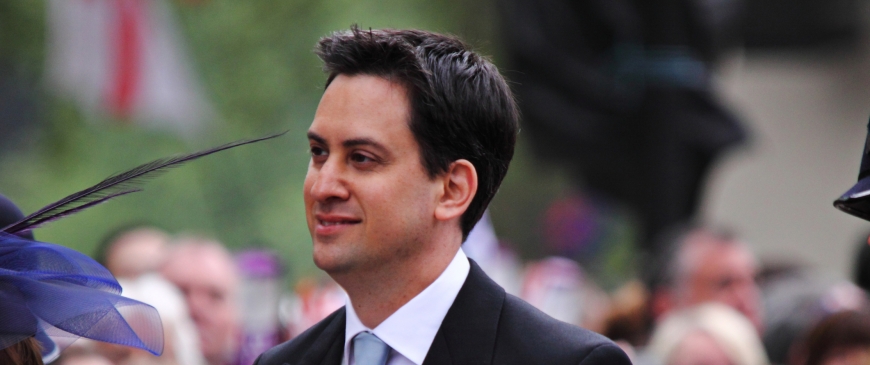
Miliband, Merkel and the f-word
What should Ed Miliband discuss in his meeting with Europe’s most powerful and successful politician, German chancellor Angela Merkel? The economy will rightly be top of the agenda. The German unemployment rate is 5.1 per cent, compared to 7.2 per cent in the UK. And Germany has fewer young people not in education or training. Around a third of German companies train apprentices, compared to less then 10 per cent in the UK. So Miliband, a good listener and learner, should ask Merkel what the UK should do to emulate Germany’s achievement
He should also ask about Germany’s public health success in countering air pollution. British cities regularly breach World Health Organisation guidelines and European Union laws on air pollution. The air in German cities is much cleaner. The worst air quality in the UK is around Buckingham Palace, where Merkel is going for tea. But at least London air is better than it was in the 1950s, before a Conservative government banned coal-burning in urban areas. Miliband implemented a sensible policy on coal when he was secretary of state for energy and climate change secretary: banning new coal power stations unless they could capture and store the carbon. The coalition has strengthened this approach. Germany is moving in the wrong direction on coal: allowing new coal stations with no pollution abatement. So this is an issue on which Merkel could learn from Miliband.
Back in listening mode, Miliband should then ask about federalism. This f-word is a term of abuse in British politics: federalists want to abandon national sovereignty and create a European superstate. Actually we don’t. Federalism is as much a devolutionary creed as it is a centralising one. Germany is a federation, and is much more decentralised than the UK. The German laender (regions) have the right to act in all policy areas except foreign affairs, defence, immigration, transport and communications. They have, to use the ugly British expression, ‘devo-max’. The UK should copy this model. If Scotland votes to remain in the UK, it should have the powers that a German Land has. So should Wales and Northern Ireland. And English regional governments should be set up, again with the powers of German regions. We could then replace the anachronistic and undemocratic House of Lords with a second chamber representing the regions, modelled on the German Bundesrat.
The meeting should finish with a discussion of the EU – though the f-word is best avoided here. The EU is not perfect, and needs reform. That is why the think-tank I work for, set up 15 years ago, is called the Centre for European Reform. We are cross-party, so work closely with Labour and Liberal Democrats and are pleased to work with pro-EU Tories when we can find them. Last year we published a report, called Building a modern European Union on how the EU should be reformed. The recommendations are not dramatic, but they are practical and achievable, and would improve EU democracy. The EU does not need any more institutions, so we don’t recommend a European Bundesrat. Instead, national parliaments should play a much more active role, not only in holding governments to account once decisions are taken, but also in influencing those decisions before they are finalised. This does not require any negotiation or treaty change. Some national parliaments do it already, including the German one. The UK parliament should do it too.
Whatever they’ve discussed, I hope that Miliband will leave the meeting with three thoughts. First, the UK has a lot to learn from Germany, as we do from many other countries. British politicians and civil servants spend far too much time reinventing the wheel on policy issues. Second, coalitions can be made to work. They’re not ideal, but they are better than opposition. Finally, I hope he will be reassured that it is not essential to have the TV-charisma of a Thatcher or a Blair to win elections and run your country.
